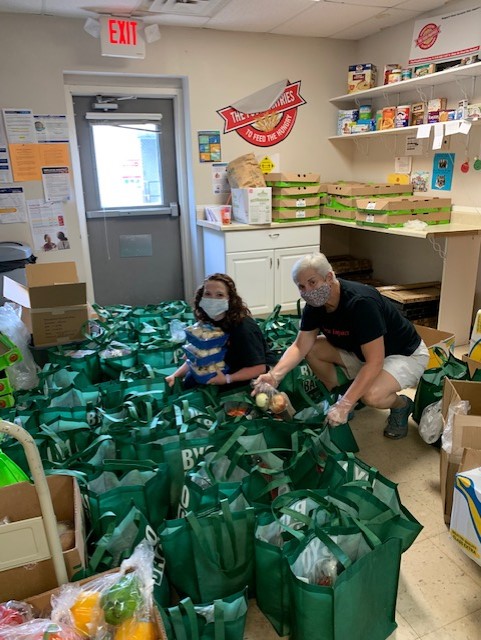Interning in Public Health During a Pandemic

ALBANY, N.Y. (August 19, 2020) – While the coronavirus has changed the internship experience for many, it has heightened the drive that public health students feel to serve the communities around them. MPH student Elizabeth Miller is helping to provide community members with fresh produce while ensuring that the program she is working on meets pandemic safety guidelines.
Miller is interning with the Food Connect Mobile Outreach Project through the Food Pantries for the Capital District. Through this program, areas that may need additional food resources are identified, and Food Connect provides free, fresh produce in the communities once a week along with information on resources. Miller is involved with preparing and collecting the produce and transporting it to the identified sites, handing out resources, scheduling volunteers and collecting data.
Previously, individuals could choose what produce they would like to take home, Miller explains. But with the coronavirus pandemic, the food is now pre-packaged in bags for people to take.
“This takes a lot of time, effort and coordination with volunteers. Depending on what site we are at, we make anywhere from 50 to 150 bags per day— with two to four different kinds of produce in each,” says Miller.

Sites include Berlin, Albany, Watervliet, Schenectady and Corinth, and these sites have to be operated differently from previous years, as well. Miller is tasked with ensuring that the set-up is safe for all involved. The sites now include three volunteer-run, socially distanced stations: a PPE station to ensure safety, a survey station (in which community members use an iPad that is cleaned and sanitized), and a third station where the bagged produce is provided.
The experience has been a rewarding challenge for Miller, who notes that on top of the traditional health and safety concerns, it is critical to ensure additional safety protocols are followed so that COVID-19 isn’t spread. She’s applying concepts from her courses on health disparities and implementing, planning and evaluating programs to ensure safety for all involved with the process.
“I am very grateful to partake in an internship like this at a time when it is desperately needed in our community,” Miller says, explaining that she has heard more community members talk about food insecurity. “It has motivated me even more to aid people. I really enjoy working with the public and knowing that I can make a difference, even when there is so much uncertainty in the world right now.”
Miller’s internship was made possible by support from Community Care Physicians for the school’s Maternal and Child Health program, which enabled her to focus on her full-time internship. This was particularly important to Miller during this time, when she says there is “a great need to focus on other people”— and the internship funding enabled her to do just that.


